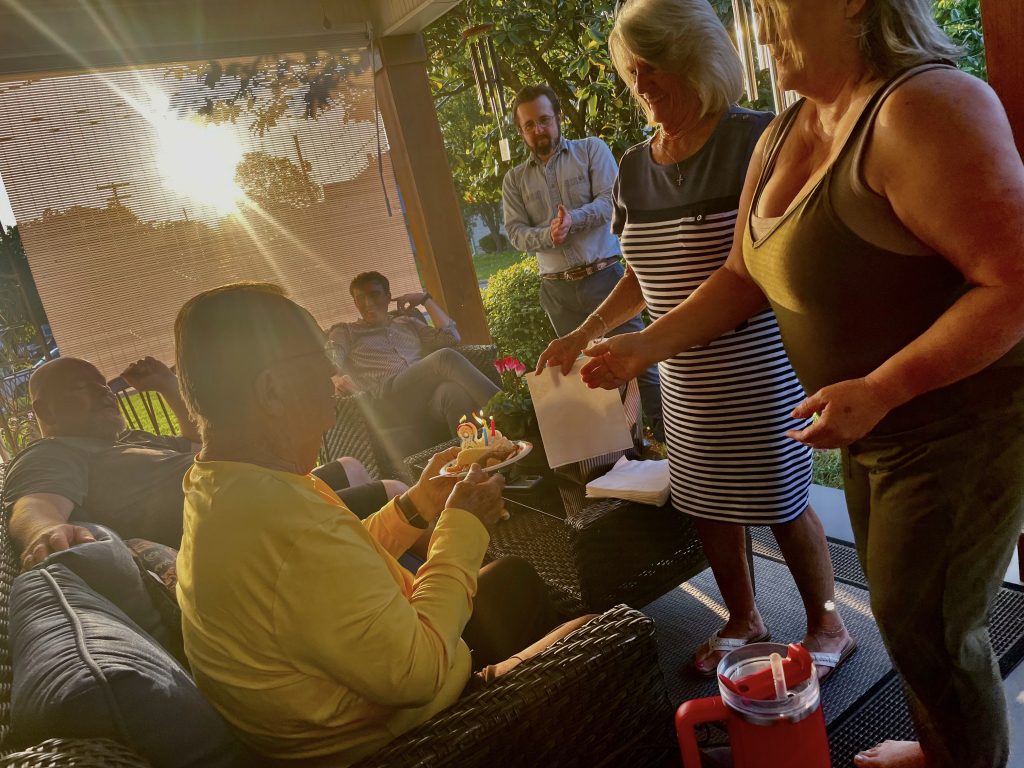
“Too much and too little wine. Give him none, he cannot find truth; give him too much, the same.” Blaise Pascal
Will you forgive me?
In 1961, Lewis and a movement colleague were at a bus station in Rock Hill, South Carolina, when several young white men attacked and beat them bloody with baseball bats. Lewis and his colleague did not fight back, nor did they press charges. They treated their wounds, got some rest, then went on with their Civil Rights work, as Lewis did for the rest of his life.
In 2009, forty-eight years after this event, a white man about John Lewis’s age walked into his office on Capitol Hill, accompanied by his middle-aged son. “Mr. Lewis,” he said, “my name is Elwin Wilson. I’m one of the men who beat you in that bus station back in 1961. I want to atone for the terrible thing I did, so I’ve come to seek your forgiveness. Will you forgive me?” Lewis said, “I forgave him, we embraced, he and his son and I wept, and then we talked.”
As Lewis came to the end of the story, he leaned back in his seat on the bus. He gazed out the window as we passed through a countryside that was once a killing ground for the Ku Klux Klan, to which Elwin Wilson had belonged. Then, in a very soft voice—as if speaking to himself about the story he had just told and the memories it must have stirred—Lewis said, “People can change. People can change.”
via parker J Palmer
Science and faith
it seemed that the biggest challenge was the question of whether God had created through the evolutionary process. However, we now realize that hesitancy about the trustworthiness of scientific conclusions among Christians runs far deeper than that. For example, about 50 million Americans declined vaccination against COVID 19. An estimated 230,000 of these persons died unnecessarily. As Francis Collins put it in his recent book The Road to Wisdom, “white evangelical Christians (my own group) [were] the most resistant of all” to receiving the vaccination, despite extensive scientific data showing its safety and efficacy.[1] Likely, most of these people would still be alive today, had it not been for society’s ineffectiveness at addressing the genuine skepticism so many have about scientific conclusions.
Scot McKnight
Discernment
There is no cognitive dissonance when your entire worldview is built on confirmation bias masquerading as divine discernment.
Stephenie Jo Warren
Stupidity
Stupidity is a more dangerous enemy of the good than malice. One may protest against evil; it can be exposed and, if need be, prevented by use of force. Evil always carries within itself the germ of its own subversion in that it leaves behind at least a sense of unease in human beings. Against stupidity we are defenseless. Neither protests nor the use of force accomplish anything here; reasons fall on deaf ears; facts that contradict one’s prejudgment simply need not be believed—in such moments the stupid person even becomes critical—and when facts are irrefutable they are just pushed aside as inconsequential, as incidental. In all this the stupid person, in contrast to the malicious one, is utterly self-satisfied and, being easily irritated, becomes dangerous by going on the attack. For that reason, greater caution is called for when dealing with a stupid person than with a malicious one. Never again will we try to persuade the stupid person with reasons, for it is senseless and dangerous.
Dietrich Bonhoeffer
Death
It is important to be prepared for death, very important; but if we start thinking about it only when we are terminally ill, our reflections will not give us the support we need.
Henri Nouwen
The Kingdom is marked by scandal
Without this contrary element, this skandalon, Christianity may be noble or kind, but it falls short of the kingdom. Our faith must not only be about doctrines concerning Christ and what He has done for us (which can easily be reduced to mere religion): our faith must be a way of living that is itself a manifestation of the Cross and resurrection of Christ – a contradiction to the world and an affirmation of the Kingdom of God.
Fr Stephen Freeman
mysterium tremendum
… that sense of tremendous mystery that surrounds our every thought of God, our every prayer to him. Beyond faith, trust, love, peace, and joy, we sense an element of bewildering strength—a strength so great that it would be humanly impossible for us to create, invent, or manufacture such an experience. For one person it may come sweeping like a gentle but relentless tide, saturating the mind and heart in a self-forgetting spirit of profound worship. For another, it may linger and embed itself in an enduring mode that’s resonant with awe and wonder, until at last it fades away and the believer returns to the normal routine of everyday existence. As one contemplative humorously phrased it, “After the ecstasy, the laundry!”
Brennan Manning

View from the front porch
This past week I celebrated my 83rd birthday. It was a glorious day, weather was great…
family came, dinner was shared, showers of calls and texts, friends stopped by.
It is good to be 83. I am experiencing the fulfillment of Joel’s prophecy:
“..your old men will dream dreams.”
So thankful
STILL ON THE JOURNEY